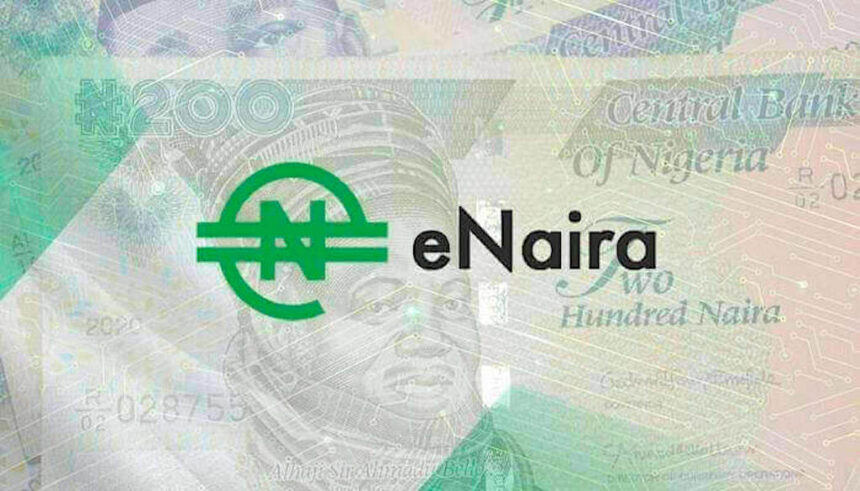Web3 & Digital Naira: Preparing Nigerian Businesses for the Next Payment Infrastructure Shift
Introduction
Nigeria’s payment landscape is changing fast. Businesses must adapt to stay competitive. Web3 and the Digital Naira (e-Naira) are driving this shift. Web3 uses blockchain for secure, direct payments. The e-Naira, launched by the Central Bank of Nigeria, is the country’s official digital currency. These tools offer new ways to handle money, but they require preparation. This blog post explains Web3 and e-Naira, their benefits, challenges, and practical steps for Nigerian businesses to get ready. If you’re searching for “Web3 Nigeria” or “e-Naira business adoption,” this guide provides clear answers.
What is Web3?
Web3 is the next version of the internet. It lets people control their data and money without relying on big companies. For payments, Web3 uses blockchain, a secure digital record, to send money quickly. Nigerian businesses can accept cryptocurrencies like stablecoins, which hold steady value. Over 25 million Nigerians use crypto, making it a growing market. Web3 also includes digital wallets for safe storage, appealing to tech-savvy customers.
What is the Digital Naira?
The Digital Naira, or e-Naira, is Nigeria’s official digital currency, launched in 2021. By 2025, its transaction value has reached about N18 billion. It works through mobile apps and wallets, allowing cashless payments. Backed by the Central Bank, e-Naira is safe and follows regulations. Unlike cryptocurrencies, it’s stable and designed for everyday use, from small shops to large firms.
Benefits of Web3 and Digital Naira for Nigerian Businesses
These technologies bring clear advantages:
- Lower Costs: Bank transfers, especially international ones, have high fees. Web3 cuts these with blockchain. Stablecoins avoid Naira value swings. e-Naira reduces cash-handling costs like printing or transport.
- Faster Transactions: Bank payments can take days. Web3 processes payments in minutes, even globally. This helps exporters in Lagos or farmers in Kano get paid quickly. e-Naira speeds up local transactions.
- Wider Reach: About 40% of Nigerians lack bank accounts. Web3 and e-Naira work via phones, reaching rural customers. Small businesses can sell to new markets without cash risks.
- Improved Security: Blockchain’s open records reduce fraud. e-Naira has Central Bank protections, building trust in a country where scams are common.
- New Opportunities: Web3 opens global markets for subscriptions or sales. e-Naira aligns with Nigeria’s cashless economy goals, attracting tech-forward customers.
Challenges Nigerian Businesses Face
Adopting Web3 and e-Naira isn’t without hurdles:
- Power Issues: Frequent outages disrupt digital payments. Businesses need backups like solar power.
- Limited Internet: Rural areas have weak connectivity, slowing Web3 and e-Naira use. Offline solutions are needed.
- Lack of Knowledge: Many owners don’t understand these technologies. Training is essential to avoid errors.
- Changing Rules: Crypto faced bans, but Nigeria is now friendlier. Businesses must track Central Bank updates.
- Volatility: Some cryptocurrencies fluctuate. Stablecoins help, but e-Naira’s low adoption (under 1%) limits its reach.
- Cyber Risks: Hackers target digital payments. Strong security is critical.
Steps to Prepare Your Business for the Shift
Here’s how Nigerian businesses can get ready:
Step 1: Learn the Basics
Education is the first step. Read free guides on Web3 adoption in Nigeria and e-Naira use. Attend workshops by groups like the Nigerian Communications Commission. Train staff on e-Naira wallets and Web3 basics to build confidence.
Step 2: Check Your Setup
Assess your tools. Do you have reliable internet and power? Invest in smartphones or POS devices for payments. For Web3, choose a blockchain like Ethereum, widely used for its reliability. Solar backups can help during outages.
Step 3: Choose Payment Tools
Select user-friendly options. For e-Naira, sign up with banks like First Bank, which offer secure wallets. For Web3, use payment gateways like Paystack, which now support crypto. Stablecoins like USDT ensure steady value for transactions.
Step 4: Set Up Security
Protect your business. Use strong passwords, anti-virus software, and two-step verification. For Web3, store private keys securely. Follow Know Your Customer (KYC) rules to comply with regulations and avoid fraud.
Step 5: Test and Launch
Start small with pilot tests. Try e-Naira or Web3 payments with staff or trusted customers. Fix any issues, then launch fully. Offer discounts for customers using e-Naira to boost adoption.
Step 6: Market to Customers
Spread the word. Use social media to promote “Web3 payments Nigeria” or “e-Naira accepted here.” Share posts on platforms like X to reach tech-savvy users. Explain benefits like speed and safety to attract customers.
Real-World Examples in Nigeria
Businesses are already adopting these tools. In Lagos, a fintech startup uses Web3 to process international payments, cutting fees by 30% and delivery times from days to minutes. In Abuja, a retail chain accepts e-Naira, serving unbanked customers via mobile apps, increasing sales by 15%. A Kano-based agribusiness uses stablecoins for export deals, avoiding Naira fluctuations and gaining trust from global buyers. These cases show Web3 and e-Naira can work despite challenges.
Future Outlook for Web3 and e-Naira in Nigeria
By 2030, Nigeria’s digital economy could grow significantly. Web3 adoption is rising, with crypto transactions projected to hit $10 billion annually. e-Naira use is expected to expand as the Central Bank pushes cashless policies. Combining Web3 with e-Naira could make Nigeria a leader in African fintech. Businesses that adopt early will gain a competitive edge, attracting younger, tech-savvy customers. Government support, like tax breaks for digital payments, will further drive growth.
Overcoming Adoption Barriers
To succeed, businesses must tackle barriers head-on:
- Training Programs: Partner with tech hubs like Co-Creation Hub to educate staff.
- Affordable Tools: Use low-cost devices and open-source software to cut setup costs.
- Partnerships: Work with banks or fintechs like Flutterwave to integrate e-Naira and Web3.
- Customer Education: Run campaigns to teach customers about digital payments’ safety and ease.
Conclusion
Web3 and the Digital Naira are reshaping Nigeria’s payment system. They offer faster, cheaper, and safer transactions, opening new markets for businesses. While challenges like power, internet, and knowledge gaps exist, preparation is straightforward with the right steps. By learning, upgrading tools, ensuring security, and marketing smartly, Nigerian businesses can thrive in this shift. Start now to stay ahead in the cashless future.






